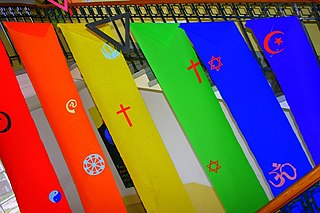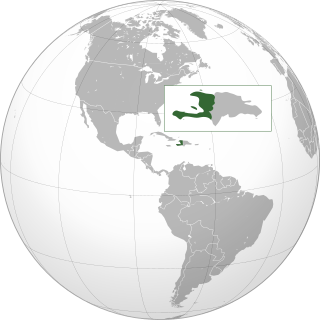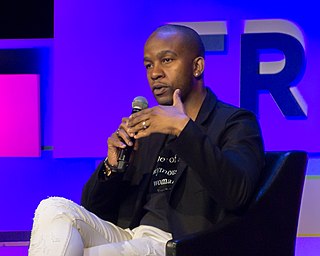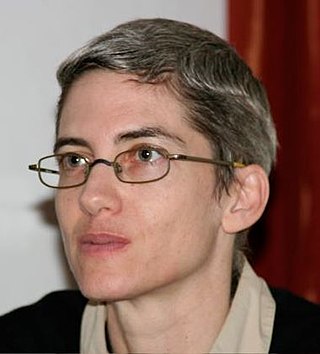
Queer is an umbrella term for people who are not heterosexual or are not cisgender. Originally meaning 'strange' or 'peculiar', queer came to be used pejoratively against LGBT people in the late 19th century. From the late 1980s, queer activists began to reclaim the word as a neutral or positive self-description.

The LGBTQ community is a loosely defined grouping of lesbian, gay, bisexual, transgender, and queer or questioning individuals united by a common culture and social movements. These communities generally celebrate pride, diversity, individuality, and sexuality. LGBTQ activists and sociologists see LGBTQ community-building as a counterweight to heterosexism, homophobia, biphobia, transphobia, sexualism, and conformist pressures that exist in the larger society. The term pride or sometimes gay pride expresses the LGBTQ community's identity and collective strength; pride parades provide both a prime example of the use and a demonstration of the general meaning of the term. The LGBTQ community is diverse in political affiliation. Not all people who are lesbian, gay, bisexual, or transgender consider themselves part of the LGBTQ community.
Queer studies, sexual diversity studies, or LGBTQ studies is the study of topics relating to sexual orientation and gender identity usually focusing on lesbian, gay, bisexual, transgender, gender dysphoric, asexual, aromantic, queer, questioning, and intersex people and cultures.
"New queer cinema" is a term first coined by the academic B. Ruby Rich in Sight & Sound magazine in 1992 to define and describe a movement in queer-themed independent filmmaking in the early 1990s.

LGBTQ culture is a culture shared by lesbian, gay, bisexual, transgender, and queer individuals. It is sometimes referred to as queer culture, while the term gay culture may be used to mean either "LGBT culture" or homosexual culture specifically.
Queer theology is a theological method that has developed out of the philosophical approach of queer theory, built upon scholars such as Marcella Althaus-Reid, Michel Foucault, Gayle Rubin, Eve Kosofsky Sedgwick, and Judith Butler. Queer theology begins with the assumption that gender variance and queer desire have always been present in human history, including faith traditions and their sacred texts such as the Jewish Scriptures and the Bible. It was at one time separated into two separate theologies: gay theology and lesbian theology. Later, the two theologies would merge and expand to become the more general method of queer theology.

Gayle S. Rubin is an American cultural anthropologist, theorist and activist, best known for her pioneering work in feminist theory and queer studies.

Barbara Smith is an American lesbian feminist and socialist who has played a significant role in Black feminism in the United States. Since the early 1970s, she has been active as a scholar, activist, critic, lecturer, author, and publisher of Black feminist thought. She has also taught at numerous colleges and universities for 25 years. Smith's essays, reviews, articles, short stories and literary criticism have appeared in a range of publications, including The New York Times Book Review, The Black Scholar, Ms., Gay Community News, The Guardian, The Village Voice, Conditions and The Nation. She has a twin sister, Beverly Smith, who is also a lesbian feminist activist and writer.

Lesbian, gay, bisexual, transgender and queer (LGBTQ+)-affirming religious groups are religious groups that welcome LGBT people as their members, do not consider homosexuality as a sin or negative, and affirm LGBT rights and relationships. They include entire religious denominations, as well as individual congregations and places of worship. Some groups are mainly composed of non-LGBTQ+ members and they also have specific programs to welcome LGBTQ+ people into them, while other groups are mainly composed of LGBTQ+ members.

Lesbian, gay, bisexual, and transgender (LGBT) persons in Haiti face social and legal challenges not experienced by non-LGBT residents. Adult, noncommercial and consensual same-sex sexuality is not a criminal offense, but transgender people can be fined for violating a broadly written vagrancy law. Public opinion tends to be opposed to LGBT rights, which is why LGBT people are not protected from discrimination, are not included in hate crime laws, and households headed by same-sex couples do not have any of the legal rights given to married couples.
LGBT linguistics is the study of language as used by members of LGBTQ communities. Related or synonymous terms include lavender linguistics, advanced by William Leap in the 1990s, which "encompass[es] a wide range of everyday language practices" in LGBT communities, and queer linguistics, which refers to the linguistic analysis concerning the effect of heteronormativity on expressing sexual identity through language. The former term derives from the longtime association of the color lavender with LGBT communities. "Language", in this context, may refer to any aspect of spoken or written linguistic practices, including speech patterns and pronunciation, use of certain vocabulary, and, in a few cases, an elaborate alternative lexicon such as Polari.

Queer anarchism, or anarcha-queer, is an anarchist school of thought that advocates anarchism and social revolution as a means of queer liberation and abolition of hierarchies such as homophobia, lesbophobia, transmisogyny, biphobia, transphobia, aphobia, heteronormativity, patriarchy, and the gender binary.
Lesbian, gay, bisexual, transgender, and queer+(LGBTQ+)music is music that focuses on the experiences of gender and sexual minorities as a product of the broad gay liberation movement.

Wade Alan Davis II is an American speaker, activist, writer, educator and former American football player.

The following outline offers an overview and guide to LGBTQ topics:

The African-American LGBT community, otherwise referred to as the Black American LGBT community, is part of the overall LGBTQ culture and overall African-American culture. The initialism LGBT stands for lesbian, gay, bisexual, and transgender.

No Ashes in the Fire: Coming of Age Black and Free in America is a 2018 memoir by American writer and activist Darnell L. Moore. It explore Moore's experiences growing up in poverty in New Jersey, and his struggles with his personal identity as both black and queer.

Amal Ziv is an Israeli academic and researcher. Their research areas are pornography and sexual representations, queer culture, queer activism, and queer kinship. Because of their activism and research, Ziv is considered a prominent member of the LGBTQ and feminist communities in Israel.

Al Qaws for Sexual and Gender Diversity in Palestinian Society, often referred to as alQaws, is a Palestinian civil society organization founded in grassroots activism, aiming to be at the forefront of Palestinian cultural and social change. The organization works to build LGBTQ+ communities and promote new ideas about the role of gender and sexual diversity in political activism, civil society institutions, media, and everyday life. The organization also describes itself as "queer-feminist" and "anti-colonial" in regards to the Israeli-occupied territories.
Lesbian erasure is a form of lesbophobia that involves the tendency to ignore, remove, falsify, or reexplain evidence of lesbian women or relationships in history, academia, the news media, and other primary sources. Lesbian erasure also refers to instances wherein lesbian issues, activism, and identity is deemphasized or ignored within feminist groups or the LGBT community.













